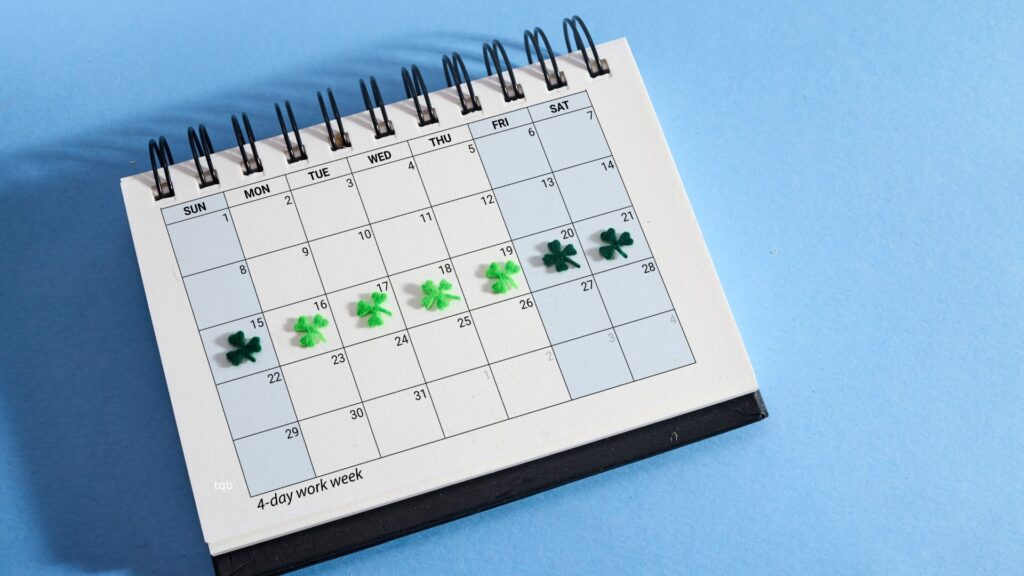Introduction
First, a disclaimer: Let’s be clear: This isn’t about cramming Sundays with to-dos or turning your day of rest into another workday. (We know that’s the fastest way to ruin a perfectly good Sunday!) Instead, this blog is about reimagining your Sundays as a liberating tool—one that helps you feel lighter, more prepared, and ultimately in control of your week. Think of it as designing a day that works for you, not against you. Because when done right, Sunday doesn’t just ‘end’ the weekend… it sets up a week that feels purposeful, not panicked.
So how do you spend your Sundays? Binge-watching shows until the Monday dread creeps in? Or cramming chores, only to feel exhausted before the week starts? If this sounds familiar, you’re not alone. Sundays often become a no-man’s land between relaxation and responsibility—but what if you could reclaim them as a secret weapon for a happier, more intentional week?
Think of Sunday as the “night routine” for your week. Just as a calming evening ritual sets the stage for a better morning, a purposeful Sunday helps you enter Monday with clarity, energy, and focus. In this post, we’ll explore why Sundays are your untapped opportunity to design a fulfilling week, how to avoid common pitfalls, and actionable strategies to turn this day into your weekly launchpad.

Why Sunday Is Your Week’s “Pre-Start” (Not Just a Day Off)
Mondays get a bad rap, but their tone is often set 24 hours earlier. Here’s why Sundays matter more than you think:
- The Psychology of Fresh Starts
Research shows that people are more motivated to pursue goals after temporal landmarks—like the start of a week. Sundays act as a “mental reset button,” creating a clean slate effect (Journal of Happiness Studies, 2020). - The Night-Before Effect
Just as a night routine (e.g., laying out clothes, prepping lunch) reduces morning stress, a Sunday routine minimizes Monday chaos. Example: Planning meals on Sunday prevents 7 AM “What’s for dinner?!” panic. - Combat the “Sunday Scaries effect”
60% of professionals admit to Sunday anxiety about the week ahead. Proactive planning replaces dread with control.
Common Sunday Pitfalls (And How to Fix Them)
Challenge 1: The All-or-Nothing Trap
“I need to relax, but I also have 101 tasks!”
Fix: Balance “recharge” and “reset” activities. Dedicate 1–2 hours to planning, then relax guilt-free.
Challenge 2: Over-Scheduling
“My Sunday to-do list is longer than my workweek’s!”
Fix: Prioritize 3 “anchors” for the day (e.g., a home task goal, a workout goal, family time).
Challenge 3: Digital Overload
“I check emails ‘just in case’ and end up stressed.”
Fix: Set a “digital sunset” by 5 PM. Use apps like Freedom to block work apps.
Challenge 4: Guilt-Driven Rest
“I feel lazy if I’m not productive.”
Fix: Reframe rest as strategic recovery. Even CEOs like Arianna Huffington swear by unplugged Sundays.
The Sunday Reset Formula: 3Rs to Design Your Week
Here’s a simple, personalized framework to transform your Sundays:
1. Reflect: Review the Past Week
- Ask Yourself:
- What went well? (Celebrate small wins!)
- What drained my energy? (can I plan my office travel time better?)
- What’s one thing I’d do differently?
- Action Step: Journal for 10 minutes. Use prompts like, “I felt proud when…” or “I need to let go of…”
2. Recharge: Fuel Your Body and Mind
- Physical Reset: Prep a nourishing meal (try easy prep meals for lunches) or take a nature walk.
- Emotional Reset: Call a friend, meditate, or indulge in a hobby (e.g., reading, painting, gardening).
- Example: Sarah, a teacher, uses Sunday mornings for yoga and batch-cooks soups. “It’s my ‘me time’ armor for chaotic school days.”
3. Reset: Plan with Purpose
- Top 3 Priorities: Identify key goals for the week (work, personal, or relational).
- Time-Blocking: Schedule 2–3 MITs (Most Important Tasks) for each day. Tools like Google Calendar or Notion work well.
- Prep “Future You”: Lay out outfits, pack gym bags, or set up a Monday morning playlist.
Sample Sunday Schedule:
- 9 AM: Coffee + 10-minute journaling
- 10 AM: Grocery run + meal prep
- 12 PM: Lunch with family
- 2 PM: 30-minute walk + podcast
- 4 PM: Review calendar + set weekly goals
- 6 PM: Digital detox + movie night

Real-Life Success Stories
Case Study 1: Mark, a Freelancer
Struggled with inconsistent income and burnout. Started using Sundays to:
- Plan client work in 90-minute blocks.
- Schedule “buffer days” for unexpected tasks.
Result: Increased income by 30% and reduced weekend work.
Case Study 2: Priya, a Busy Parent
Felt overwhelmed by chores and kid’s activities. Implemented:
- Family “Sunday Summit” to delegate tasks.
- 20-minute speed-cleaning sessions.
Result: More quality time and less morning chaos.
Conclusion
Your Sundays don’t have to be a wasted day or a stress factory. By treating them as a weekly reset, you create space to reflect, recharge, gain mental clarity and design a week that aligns with your priorities. Start small: Pick one tip from this post (like a 10-minute journal or meal prep) and build from there. Remember, a great week doesn’t happen by accident—it’s built the day before.
FAQs
Q: How much time should I spend on my Sunday reset?
A: Even 30–60 minutes can make a difference! Focus on quality, not quantity.
Q: What if I have unpredictable weekends (travel, family plans)?
A: Adapt! Use Sunday evenings for a 15-minute “mini-reset” (e.g., pack your bag, jot down 3 priorities).
Q: Can I still relax on Sundays?
A: Absolutely! The goal is intentionality. Schedule guilt-free downtime—it’s part of recharging.
Q: What if my Sunday plan fails?
A: Flexibility is key. Treat it as an experiment—adjust what doesn’t work and try again next week.



